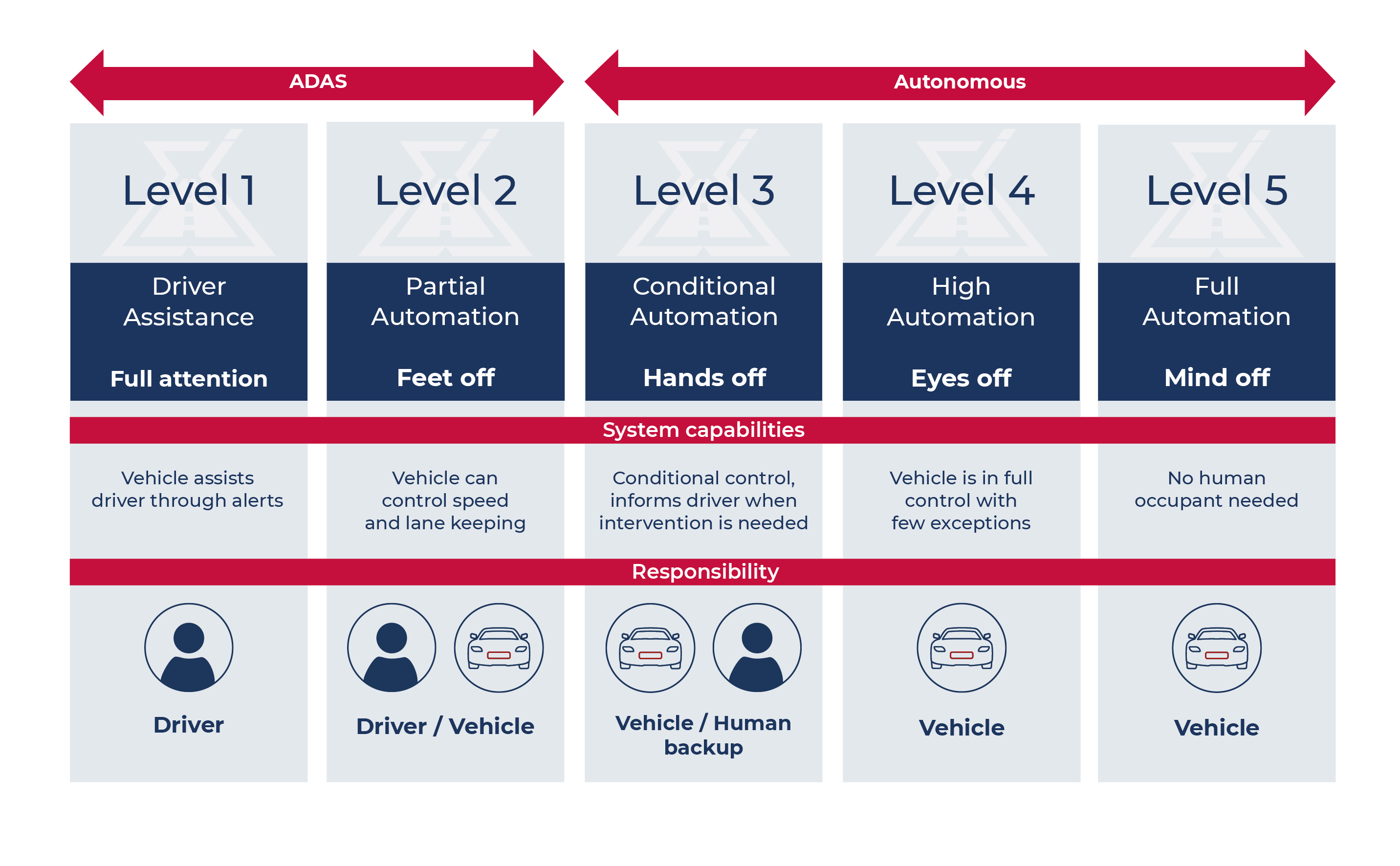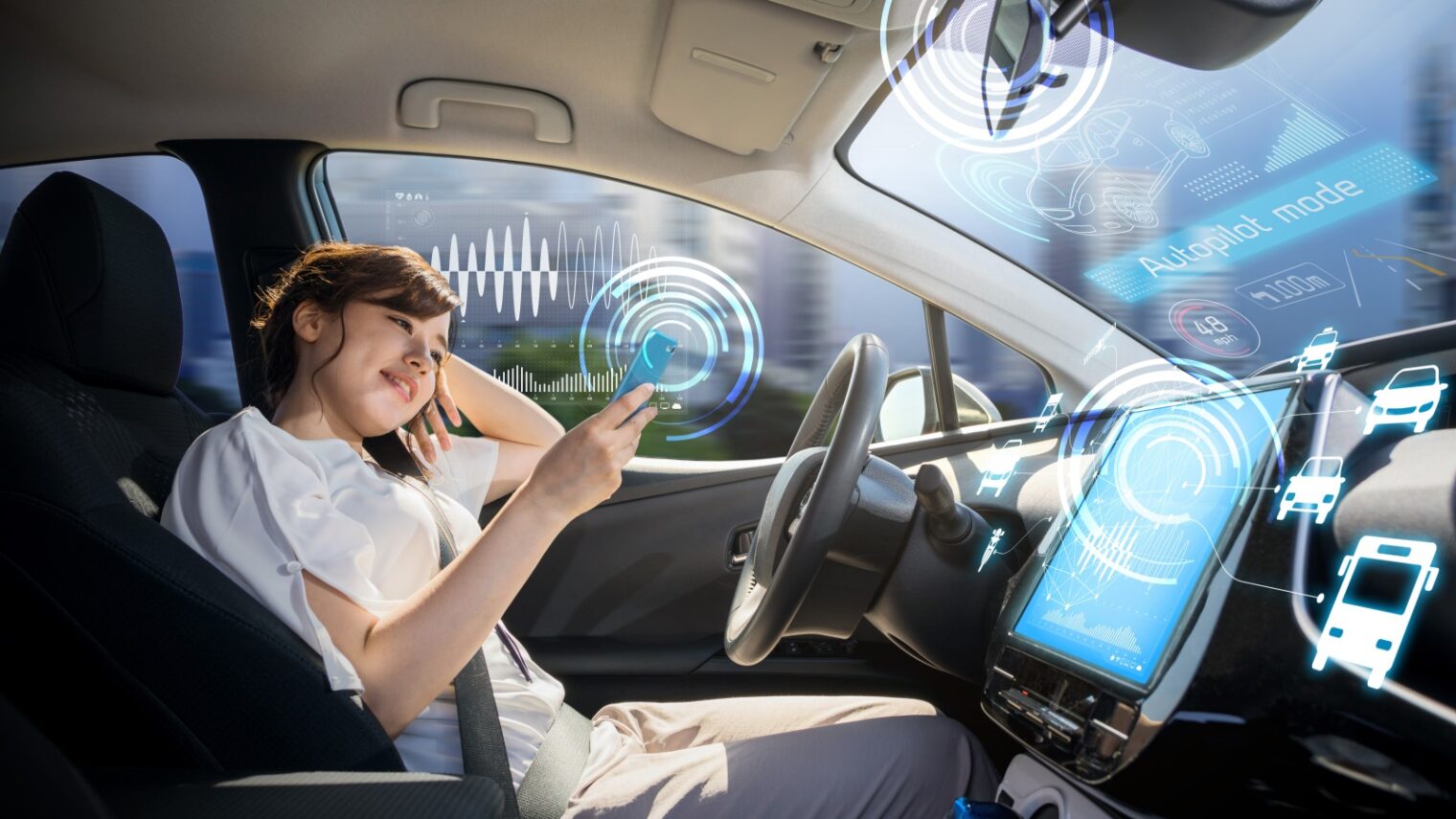Understanding Advanced Driver Assistance Systems (ADAS) Levels
In the ever-evolving landscape of automotive technology, the concept of fully autonomous vehicles stands as a beacon of innovation, promising a future where cars navigate the complexities of roadways with unparalleled efficiency and safety. This vision, once confined to the realms of science fiction, has steadily materialized into a tangible reality, driven by relentless advancements in artificial intelligence, sensor technology, and machine learning algorithms.
The journey towards fully autonomous vehicles has been marked by a series of remarkable milestones and breakthroughs, each bringing us closer to the realization of this transformative vision. From the early days of rudimentary driver assistance systems to the sophisticated automation capabilities of today, the evolution of autonomous driving has been characterized by a relentless pursuit of perfection and a commitment to pushing the boundaries of what's possible.
At the heart of this evolution lies the Society of Automotive Engineers (SAE) International J3016 Standard, a comprehensive framework that defines the various levels of automation in vehicles. These levels, ranging from Level 0 to Level 5, provide a structured approach to understanding the capabilities and limitations of autonomous driving systems, guiding both manufacturers and consumers on the path towards full autonomy.
Also Read: China's Leapmotor set to enter India with EVs

Level 0 serves as the baseline, where vehicles rely entirely on human drivers for navigation and control. While basic electronic aids may offer some assistance, the primary responsibility for driving rests squarely on the shoulders of the individual behind the wheel.
As we ascend the automation hierarchy, each subsequent level brings with it a greater degree of autonomy and sophistication. Level 1 introduces driver assistance systems that provide limited support for tasks such as steering and braking, laying the groundwork for more advanced capabilities to come.
Level 2 represents a significant leap forward, with vehicles capable of controlling both longitudinal and lateral dynamics simultaneously. This level of automation unlocks a range of advanced features, including adaptive cruise control and lane-keeping assist, offering drivers a taste of the future while still requiring their active supervision.
Moving into Level 3, the paradigm shifts as vehicles gain the ability to assume full control of driving tasks under certain conditions. While drivers may temporarily disengage from active supervision, they must remain vigilant and ready to intervene at a moment's notice, ensuring a seamless transition between human and machine control.
At Level 4, the boundaries of autonomy are pushed even further, with vehicles capable of operating independently under specific conditions without the need for human intervention. This level opens up new possibilities for mobility, allowing occupants to focus on other tasks while the vehicle handles the complexities of navigation and control.

Finally, at Level 5, the ultimate vision of autonomy is realized. Vehicles possess the capability to operate autonomously under all conditions, without the need for human oversight or intervention. With no steering wheels, pedals, or traditional controls, passengers are liberated from the constraints of conventional driving, ushering in a new era of mobility and convenience.
As we stand on the threshold of this transformative shift, the future of autonomous driving holds immense promise and potential. While challenges and obstacles undoubtedly lie ahead, the relentless march of progress ensures that the dream of fully autonomous vehicles will soon become a ubiquitous reality on our roadways.
Also Read: MotoGP Announces 2027 Regulations